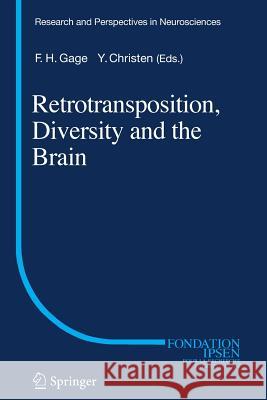Retrotransposition, Diversity and the Brain » książka
Retrotransposition, Diversity and the Brain
ISBN-13: 9783642094378 / Angielski / Miękka / 2010 / 123 str.
The human brain is remarkably complex, permitting sophisticated behavioural rep- toires, such as languages, tool use, self-awareness, symbolic thought, cultural learning and consciousness. Each human being is different, due in part to the uniqueness of the neuronal heterogeneity and interconnections in our brains. Brain complexity and neuronal diversity are strongly related. The diversity of single neurons provides the underpinnings for how neuronal circuits operate. How and when neuronal diversity is generated, both in embryonic and adult neurogenesis, remain unknown. In the immune system, the highly diverse array of antigen receptors can be - tributed to the stochastic nature of the recombination process in somatic precursor cells, causing permanent changes in DNA and gene expression. This diverse population is then the target of selective processes that favor the correct antigen-receptor match and eliminate those with inadequate speci?cities, accounting for the rapid kinetics and immense diversity observed in vivo. Evidence for a possible similarity between the nervous and immune systems came from studies with mice de?cient in DNA double strand break (DSB) repair. Lessons learned from the discovery of the mechanism for diversityinthe immune system maybe usefultothe investigation ofthe mechanism of diversity in neurons.











